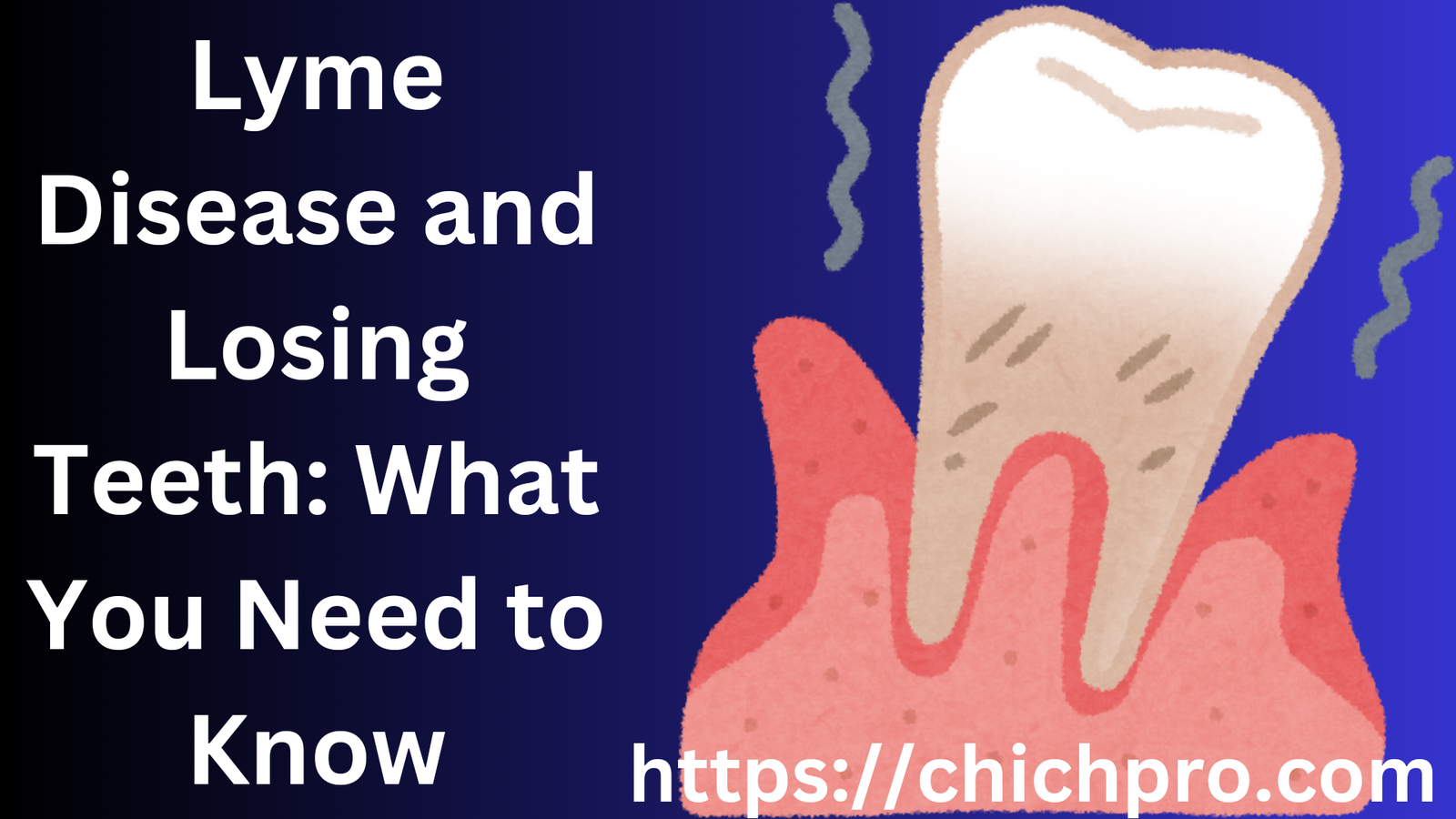Overview
Did you know that Lyme disease, which is frequently linked to weariness and joint pain, might also have an impact on your oral health? Unexpectedly, this disease spread by ticks may aggravate oral health issues, such as tooth loss. Let’s examine how dental health and Lyme disease are related, as well as ways to safeguard your smile.
Knowing the Lyme Disease
Causes and Transmission
The bacteria Borrelia burgdorferi, which causes Lyme disease, is spread by black-legged tick bites. The bacterium can spread and impact several bodily systems once it’s within your system.
Signs and Development
The typical “bull’s-eye” rash, fever, and exhaustion are among the early signs. Chronic consequences, such as neurological, cardiovascular, and musculoskeletal problems, may result from untreated treatment.
The effects of Lyme disease on the body
include extensive inflammation that damages all of the body’s tissues and organs. Indirect effects on dental health may result from this systemic inflammation spreading to the teeth and gums.
Effects on Dental Health
Inflammation of the gums and periodontal problems: Lyme disease-related inflammation can exacerbate gum disease, resulting in loose teeth and receding gums.
Risks of tooth decay and infection: Teeth that have weakened immune systems are more susceptible to infections and deterioration.
The Tooth Loss and Lyme Disease
Direct Causes of Tooth Loss
Teeth loss is not a direct result of Lyme disease. However, the risk might be considerably increased when gum disease, systemic inflammation, and other issues coexist.
Indirect Dental Health Contributing Factors Reduction
Suppression of the immune system: Your mouth is more vulnerable to infections that might damage dental structures if your immune system is compromised.
Nutritional Difficulties: Deficits in vital minerals like calcium and vitamin D, which are necessary for healthy teeth, might result from Lyme disease’s frequent impact on appetite.
Identifying the Warning Indications
Keep an eye out for signs like dental sensitivity, chronic foul breath, or bleeding gums. See a dentist right away if you have these symptoms in addition to Lyme disease symptoms.
Tips for Preventive
Dental Hygiene
Use fluoridated toothpaste and brush at least twice a day.
To get rid of dirt in between your teeth, floss frequently.
Nutrition and Diet
Incorporate foods high in calcium, such as leafy greens and dairy.
Steer clear of acidic drinks and sugary snacks as they can erode enamel.
Options for Treatment
Therapeutic Interventions for Lyme Disease
The main treatment for Lyme disease is antibiotics. Although they aid in the infection’s removal, they may also have adverse effects including dry mouth, which raises the possibility of dental issues.
Procedures for Restorative Dentistry
Patients who have decayed or lost teeth have the following options
Crowns and fillings to repair broken teeth
Dentures or implants for extensive tooth loss
Managing the Effects on Emotions
Self-confidence can be negatively impacted by tooth loss. To deal with emotional difficulties, think of restorative alternatives and look for help from therapists or support groups.
Recuperation and Extended Management
After Lyme disease is under control, concentrate on regaining your health through regular dental care and a balanced diet. To track your progress, you must see your primary care physician and dentist on a regular basis.
In conclusion
The connection between oral health and Lyme disease emphasizes the value of a holistic approach to wellbeing. You can control the consequences of Lyme disease and save your smile by remaining watchful and proactive.
FAQs
Q1.Can Lyme disease directly cause tooth loss?
No, although it may indirectly cause gum disease and other oral health problems.
Q2.What signs of dental disease should people with Lyme disease look out for?
Keep an eye out for persistent bad breath, gum irritation, and inflammation.
Q3.If you have Lyme disease, are there any particular foods you should avoid?
Yes, you should limit foods high in sugar and acid since they might damage your gums and teeth.
Q4.In what ways may dentists support oral health management in patients with Lyme disease?
Dentists can offer specialized care, such as cleaning, fluoride treatments, and dry mouth management guidance.
Q5.Can people with Lyme disease reverse their tooth loss?
Although lost teeth cannot grow back, they can be successfully replaced with restorative procedures like implants and dentures.





